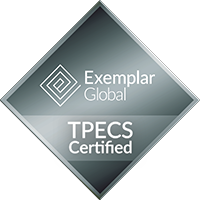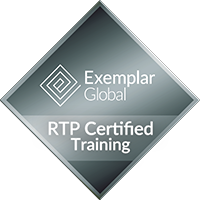| Approx Course Duration *: | Equivalent to Approx. 1hr |
| Access to Course Content: | 18 Months from the date of enrolment |
| Qualification/s: | Introduction to ISO 22000 Clause 4 Context of the Organization |
| CPD Hours: | 1 Continuing Professional Development Hours |
A stackable, certified microcredential for food industry professionals.
Why this clause matters: Clause 4 requires you to determine internal and external issues (including climate change), identify relevant interested parties and their needs, define the scope of your FSMS, and establish the management system itself — the foundation for everything that follows in ISO 22000.
This microcredential unpacks Clause 4 so you can identify organizational issues and stakeholders, set an accurate FSMS scope, and establish the system and processes needed to manage food safety effectively.
You’ll practice using SWOT, PEST/PESTLE, and Porter’s Five Forces to make context analysis practical and audit-ready, including the 2024 climate-change consideration.
Who this course is for
Professionals across the food chain who need a practical way to define FSMS context and scope, align stakeholders and set up a system that supports real operations.
- Food manufacturers, processors, storage, distribution, retail and catering teams
- FSMS coordinators, quality/compliance managers and consultants
- Leaders shaping food safety strategy and resources
- New team members building foundational ISO 22000 fluency
What you’ll learn
- How to interpret Clause 4 and link it to FSMS planning and improvement
- How to assess internal and external issues using SWOT, PEST/PESTLE and Five Forces
- How to identify interested parties and translate their needs into FSMS requirements
- How to define and document an accurate FSMS scope (Clause 4.3) and system (Clause 4.4)
- How to integrate the 2024 climate-change consideration into context analysis
What you’ll be able to do
- Explain your organization’s context and FSMS scope clearly to leaders, auditors and teams
- Prioritize risks and opportunities that matter to food safety and performance
- Document context, interested parties and scope in a way that supports audit evidence
- Use context insights to inform objectives, resources and later clause work
What’s included
- Focused microcredential on ISO 22000 Clause 4 with clause statements and practical guidance
- Hands-on tools: SWOT template, PEST/PESTLE prompts and Five Forces prompts
- Examples that show how context drives scope, FSMS design and improvement
- Knowledge checks and downloadable references for ongoing use
Upgrade your pathway
Stack this credential with additional ISO 22000 microcredentials — or progress into assessed pathways (Specialist, Internal Auditor, Lead Auditor) when you’re ready.
Compare ISO 22000 course options
| Course Type | Includes Assessment? | Suitable Roles | Primary Outcome |
|---|---|---|---|
| Introduction to ISO 22000 | No |
|
Understand ISO 22000 and FSMS essentials; upgradeable to Specialist |
| ISO 22000 Specialist | Yes |
|
Plan, implement and maintain a Food Safety Management System with evidence and templates |
| ISO 22000 Internal Auditor | Yes |
|
Plan, conduct and report FSMS audits that drive corrective action and improvement |
| ISO 22000 Lead Auditor | Yes |
|
Lead audit teams and manage audit programs for certification readiness |
| Stackable Microcredentials | Varies |
|
Add targeted, stackable knowledge that complements core ISO 22000 training |
A stackable, certified microcredential for food industry professionals.
Why this clause matters: Clause 4 requires you to determine internal and external issues, identify relevant interested parties, define the FSMS scope, and establish the management system processes — the foundation for everything that follows.
This microcredential contains the following lessons, with a knowledge check and a short-format exam upon completion.
| Lesson Topic | Focus Area | Key Takeaways |
|---|---|---|
| Clause 4.1 | Understanding the Organization & Its Context | Identify internal/external issues using SWOT, PEST, Five Forces — include climate change. |
| Clause 4.2 | Interested Parties | Determine stakeholders and translate their needs into FSMS requirements. |
| Clause 4.3 | Scope of the FSMS | Define and document an accurate, audit-ready FSMS scope aligned to activities and sites. |
| Clause 4.4 | FSMS & Its Processes | Establish, implement, maintain and continually improve the FSMS and its interactions. |
Course details:
-
Microcredential
-
Approx 1 hours full-time study*
-
Digital Microcrendential
-
Standard: ISO 22000:2018
-
No prerequisites required
* All ATOL courses are delivered in such a way you can work through them at your own pace, the actual time to complete the training may change depending on the individual learners' experience and/or learning style

















 NO PREREQUISITES
NO PREREQUISITES